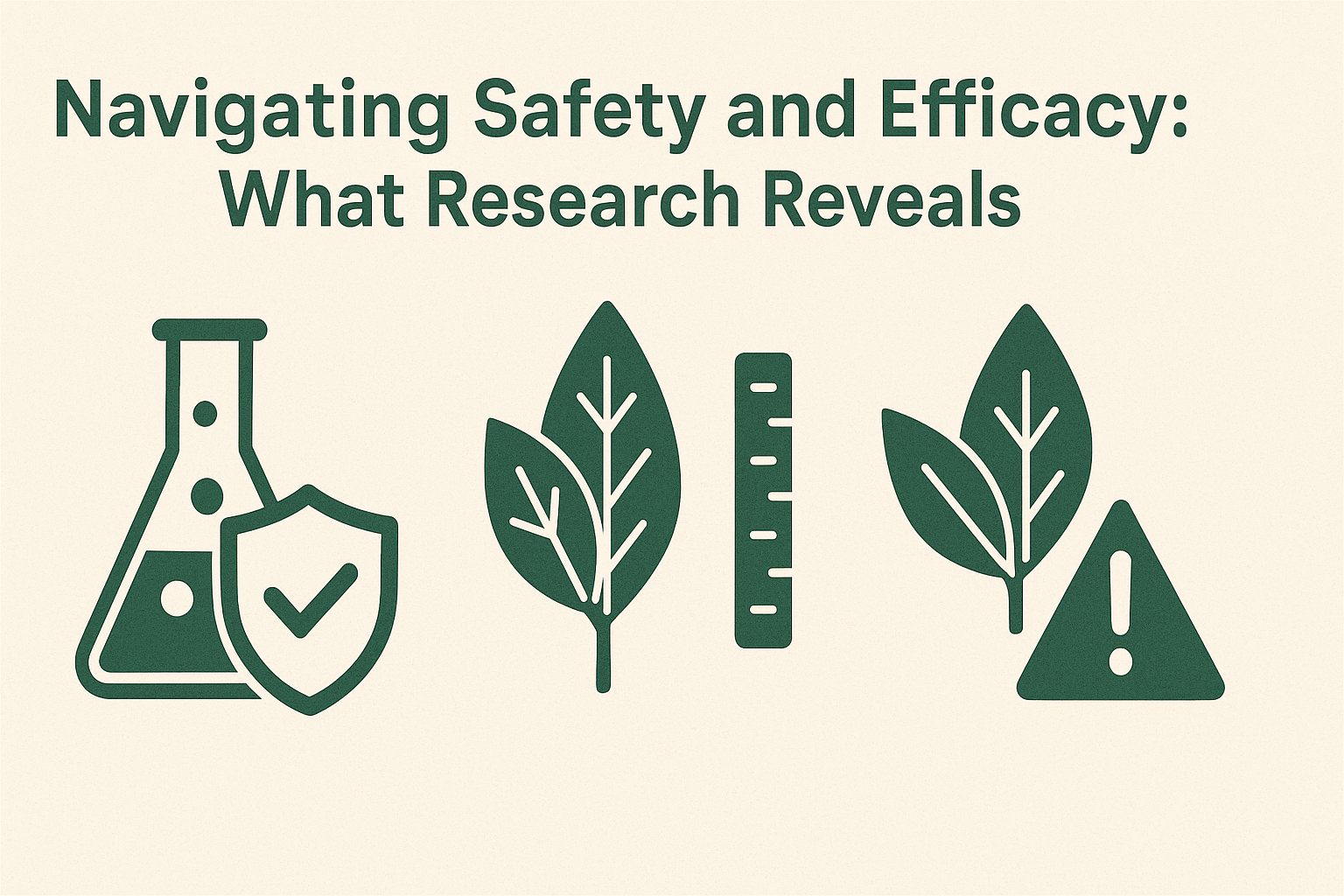Understanding ADHD and the Growing Interest in Natural Remedies
Attention Deficit Hyperactivity Disorder (ADHD) has long been a focus of medical research and treatment, traditionally managed with pharmaceutical interventions such as stimulants and non-stimulants. However, a growing body of evidence suggests that certain herbs may offer supportive benefits for brain function, especially among women, whose ADHD symptoms often manifest differently compared to men. Women with ADHD frequently experience pronounced challenges with memory, focus, and emotional regulation. Recognizing these differences has spurred interest in alternative approaches, particularly herbs traditionally associated with cognitive support and mental clarity.
You may also like: Where to Buy Bacopa Monnieri: How to Find Quality Supplements for Cognitive and Memory Support
Recent advances in natural medicine have paralleled findings from the new multivitamin study, which has revealed promising links between nutritional supplementation and cognitive preservation. In light of research such as the multivitamin memory study, which demonstrated that multivitamins may slow memory loss, scholars and health enthusiasts alike are exploring how specific herbs might enhance memory, attention, and emotional stability without the side effects associated with conventional medications. As the scientific community continues to uncover insights through multivitamin research and vitamin supplement studies, the interest in herbs as complementary interventions for ADHD grows stronger.

Why Herbs Are Gaining Attention for ADHD Support
The shift toward herbal interventions for ADHD is not merely a trend but reflects deeper concerns about pharmaceutical dependency and side effects. Natural herbs, when properly selected and used under professional guidance, can offer neuroprotective, adaptogenic, and mood-stabilizing effects. Herbs may also complement the cognitive benefits identified in recent multivitamin efficacy research, suggesting a holistic approach to brain health.
Moreover, the concept that multivitamins slow memory loss as revealed in several studies, including the multivitamin and memory loss study, encourages the idea that the brain can benefit from consistent, targeted nutritional and botanical support. The notion that multivitamins may slow memory loss echoes the broader possibility that plant-based therapies can meaningfully impact cognitive trajectories.
Best Herb for ADHD: Bacopa Monnieri
Among the many herbs studied for their potential to support ADHD symptoms, Bacopa monnieri, often called Brahmi, stands out as one of the most promising. Traditionally used in Ayurvedic medicine for centuries, Bacopa has demonstrated cognitive-enhancing properties in modern clinical trials. Several studies show that Bacopa can improve memory recall, executive function, and processing speed, crucial areas often compromised in individuals with ADHD.
Bacopa’s ability to modulate neurotransmitter activity, particularly acetylcholine and dopamine, is particularly relevant. These neurotransmitters play vital roles in attention, motivation, and emotional regulation. Notably, Bacopa also exhibits antioxidant properties, helping to protect the brain from oxidative stress, a factor implicated in ADHD pathophysiology.
Paralleling the optimism around the new study on vitamin supplements, which underscores how daily supplementation can benefit memory and cognitive resilience, Bacopa’s effects similarly suggest that sustained, natural intervention could yield meaningful benefits over time. In the same way that a multivitamin for brain function supports cognitive clarity, Bacopa supports memory consolidation and attentional capacity, offering hope for those seeking a natural adjunct to conventional ADHD treatments.

Top Herbs for ADHD in Women: A Closer Look
When considering herbs for ADHD in women specifically, it is critical to recognize hormonal influences on brain function. Fluctuations in estrogen and progesterone levels throughout the menstrual cycle, pregnancy, and menopause can profoundly affect cognitive performance, emotional regulation, and attention. Herbs that balance hormones, reduce anxiety, and enhance executive function may be particularly beneficial.
Ginkgo Biloba
Known for its role in improving cerebral blood flow and reducing oxidative damage, Ginkgo biloba is a well-researched herb for cognitive health. Studies show that Ginkgo can enhance working memory, processing speed, and executive functioning—areas commonly challenged in women with ADHD. Much like the encouraging findings from the multivitamin dementia study, which suggested that targeted supplementation could slow cognitive decline in dementia patients, Ginkgo demonstrates that natural interventions can support brain health across diverse populations.
Ginkgo also possesses mild monoamine oxidase inhibitory properties, which may stabilize mood and attention. For women navigating both ADHD symptoms and hormonal shifts, Ginkgo offers a natural way to enhance cognitive resilience and emotional balance.
Rhodiola Rosea
Rhodiola, an adaptogenic herb traditionally used to combat fatigue and enhance mental performance, is particularly well-suited for women with ADHD who experience emotional dysregulation, chronic fatigue, and executive dysfunction. Rhodiola’s ability to modulate cortisol levels—the body’s primary stress hormone—is critical. By reducing cortisol, Rhodiola may mitigate the anxiety and overwhelm often associated with ADHD.
In a similar vein to how multivitamins memory studies highlight the benefits of consistent supplementation for long-term cognitive health, regular use of adaptogens like Rhodiola may offer cumulative benefits over time, enhancing stress resilience and executive functioning.

Passionflower (Passiflora incarnata)
While often overlooked in ADHD discussions, Passionflower holds remarkable promise, particularly for women struggling with emotional reactivity and sleep disturbances. This gentle herb works on the gamma-aminobutyric acid (GABA) system, promoting relaxation without causing sedation. Proper emotional regulation and restful sleep are foundational to optimal brain function, a point increasingly recognized in holistic ADHD management strategies.
Integrating Passionflower into a comprehensive plan mirrors the philosophy behind a daily vitamin for memory loss: small, consistent actions can yield profound results in brain health over time.
The Importance of Holistic Approaches to ADHD Management
Although herbs offer exciting possibilities, it is important to approach ADHD management holistically. Cognitive behavioral therapy (CBT), executive function coaching, nutritional optimization, mindfulness practices, and appropriate supplementation all work synergistically. As demonstrated in multivitamin research, especially the recent multivitamin news emphasizing brain function benefits, multifactorial interventions typically produce the best outcomes.
A holistic view acknowledges that herbs alone are unlikely to “cure” ADHD. However, in conjunction with targeted lifestyle modifications—such as regular physical exercise, quality sleep, and nutrient-rich diets—herbs can significantly enhance cognitive function and emotional resilience. The analogy here is much like understanding that multivitamins slow memory loss not as a cure but as a protective and supportive measure against cognitive decline.
What We Know About Multivitamins and Memory and Its Implications for Herbal Support
Findings from recent studies on multivitamins and memory loss provide an illuminating framework for understanding the potential role of herbs in brain health. A comprehensive multivitamin memory study revealed that participants who took daily multivitamin supplements exhibited better episodic memory and executive functioning compared to those taking placebos. Importantly, these studies emphasized that consistency was key: benefits accrued over months, not days.
This pattern mirrors how herbal interventions work. Just as multivitamins may slow memory loss through long-term neuroprotective mechanisms, herbs like Bacopa, Ginkgo, and Rhodiola require sustained use to realize their full potential. Such findings emphasize the need for patience and commitment when embarking on a natural approach to ADHD support.
Moreover, when reflecting on multivitamin dementia study results, it becomes apparent that both nutritional and botanical strategies must be personalized. Different individuals respond uniquely based on genetic, environmental, and lifestyle factors. This personalization principle should guide the selection and use of herbs for ADHD, particularly for women whose cognitive needs may shift across different life stages.

Navigating Safety and Efficacy: What Research Reveals
A fundamental component of applying EEAT principles in natural health writing is emphasizing safety, informed use, and evidence-based recommendations. It is crucial to recognize that while many herbs offer cognitive benefits, they are not without risks. Potential herb-drug interactions, allergies, and contraindications must be carefully considered.
In recent discussions on multivitamin efficacy, researchers stress the importance of choosing high-quality, third-party-tested products to ensure safety and potency. The same applies to herbal supplements. Not all herbal products are created equal; standardization, sourcing, and preparation methods significantly impact therapeutic outcomes.
For example, standardized Bacopa extracts containing 20% bacosides have been most consistently associated with cognitive benefits. Similarly, Ginkgo supplements standardized to 24% flavone glycosides and 6% terpene lactones are considered the gold standard in clinical research. Such precision mirrors the meticulous standards applied in vitamin supplement study designs.
Emerging Research and Future Directions
The landscape of ADHD treatment is rapidly evolving. As multivitamin research continues to shed light on how consistent, targeted supplementation can support cognitive aging, parallel investigations into herbal medicine are expanding. Preliminary studies suggest that combining certain herbs with essential nutrients may have synergistic effects, amplifying benefits for focus, memory, and emotional regulation.
Future multivitamin dementia study designs may even incorporate botanical extracts to examine combined effects on cognitive resilience. Such integrative research will help clarify best practices for using herbs and supplements in tandem for ADHD management and broader cognitive health.
An exciting frontier involves studying herbs’ epigenetic effects—how they influence gene expression related to neurotransmitter regulation, neuroinflammation, and oxidative stress. This research promises to deepen our understanding of how botanicals can be powerful allies in sustaining brain health, much like the promising findings from new multivitamin studies continue to shape preventive cognitive medicine.
Should Seniors Take a Multivitamin for Brain Health? Lessons for ADHD Management
Insights from studies exploring whether seniors should take a multivitamin reveal broader truths about brain health across the lifespan. A daily vitamin for memory loss, as recent research suggests, may not only benefit aging populations but also support individuals with neurodevelopmental conditions like ADHD who face lifelong executive function challenges.
The multivitamin and memory loss study findings affirm that proactive, preventive approaches to brain health are valuable at any age. Similarly, women managing ADHD symptoms can benefit significantly from early, sustained interventions that prioritize brain nutrition and neuroprotection—including, when appropriate, the strategic use of herbs.
The logic is simple yet profound: just as multivitamins slow memory loss through cumulative biological support mechanisms, targeted herbal strategies can sustain attention, working memory, and emotional regulation when thoughtfully and consistently applied.

Frequently Asked Questions: Multivitamins and Memory — New Perspectives Beyond the Latest Studies
1. How does the new multivitamin study change what we know about brain aging?
The new multivitamin study offers critical insights beyond traditional assumptions about aging and cognitive decline. While past research hinted at nutritional gaps being problematic, this recent multivitamin memory study suggests that even minor daily supplementation may reinforce neuronal integrity over time. Importantly, the study found that specific micronutrient combinations — particularly those with antioxidants and B-vitamins — play a preventative rather than curative role. In terms of multivitamin efficacy, this means early, consistent use could be key for brain resilience. Understanding what we know about multivitamins and memory is shifting from isolated nutrient focus to recognizing the power of a synergistic nutrient matrix.
2. Why might multivitamins be especially important for people at risk of dementia?
Emerging data, such as the latest multivitamin dementia study, reveal that early supplementation could delay or even prevent some cognitive declines. While a multivitamin for dementia patients won’t reverse memory loss, it may slow deterioration of executive functions like planning and focus. A critical nuance uncovered by multivitamin research is that micronutrient deficiencies often precede symptomatic dementia by years, offering a therapeutic window. Thus, multivitamins may slow memory loss by supporting brain plasticity before substantial damage occurs. For those wondering, should seniors take a multivitamin?, the preventative potential becomes increasingly compelling.
3. How do multivitamins support brain function beyond memory?
Although multivitamins and memory loss are central to many conversations, broader impacts deserve attention. According to the new study on vitamin supplements, key nutrients enhance neurotransmitter production, mitochondrial efficiency, and cerebral blood flow. These mechanisms underpin not just memory, but emotional regulation, problem-solving speed, and creative thinking. Therefore, a multivitamin for brain function is not simply about protecting against memory gaps; it’s about elevating day-to-day mental agility. As this multi vitamin study reinforces, optimal brain nutrition influences almost every aspect of cognitive life.
4. Can multivitamins really make a difference if started later in life?
Starting later is better than never, although early intervention is ideal, according to the multivitamin memory study. Participants who began supplementation at age 65 still experienced measurable benefits in cognitive testing. This finding emphasizes that multivitamin efficacy persists across different life stages, though it may vary in magnitude. One aspect less discussed in the vitamin supplement study is the potential role of multivitamins in mood regulation, which can indirectly bolster memory through reduced stress. Therefore, whether addressing multivitamins and memory loss or simply enhancing quality of life, late adoption is valuable.
5. What nutrients in multivitamins are most critical for memory protection?
While the multivitamin news often spotlights general supplementation, deeper analysis highlights certain standouts: B12, folate, vitamin D, and magnesium. The new multivitamin study identifies B vitamins, particularly, as crucial for maintaining hippocampal health — the brain’s memory hub. Other findings from the multivitamin and memory loss study suggest that antioxidants like vitamins C and E play a secondary role by mitigating oxidative stress. As multivitamin formulations evolve based on multivitamin research, expect future products to be increasingly tailored toward cognitive preservation. Choosing a daily vitamin for memory loss packed with these specific nutrients offers the most strategic approach.
6. Are there lifestyle factors that enhance or diminish multivitamin benefits?
Absolutely — context matters, as reinforced by the multivitamin memory study. Physical activity, adequate sleep, and stress management can amplify the positive effects seen in multivitamin for brain function trials. Conversely, chronic inflammation, smoking, and excessive alcohol intake may blunt the benefits of supplementation, as noted in ancillary findings from the multivitamin dementia study. For optimal outcomes, multivitamin use should be paired with a holistic brain health strategy. This layered approach respects the complexity illuminated by multivitamin research and ensures maximum protective synergy.
7. How reliable are claims that multivitamins slow memory loss?
When considering claims that multivitamins slow memory loss, it’s important to interpret findings through a scientific lens. Not all studies show identical results; variations in participant health, supplement formulations, and study duration affect outcomes. The latest multivitamin study used rigorous double-blind, placebo-controlled methods, offering high-quality evidence. However, as with any nutritional intervention, multivitamins are supportive rather than stand-alone treatments. What we know about multivitamins and memory is evolving, and ongoing research will further clarify their role in comprehensive cognitive care plans.
8. Should multivitamins be personalized for dementia prevention?
Personalization represents the next frontier, as suggested indirectly by the new study on vitamin supplements. Genetic factors, baseline nutritional status, and preexisting health conditions can influence how individuals respond to a multivitamin for dementia. This trend toward precision supplementation will likely reshape future guidelines around multivitamin for dementia patients. Rather than a one-size-fits-all solution, targeted interventions based on biomarker profiles could maximize the ability of multivitamins to slow memory loss. The era of generic advice is ending as multivitamin research increasingly supports customization.
9. How can consumers evaluate the best multivitamin for brain health?
Given the boom in multivitamin news, consumers must navigate hype carefully. Prioritize products that have clinical trials supporting their claims, ideally published in peer-reviewed journals. Certifications like USP or NSF can further guarantee purity and potency, crucial factors noted in recent multivitamin memory study discussions. Be wary of brands making exaggerated promises about curing cognitive decline, as legitimate multivitamin efficacy focuses on support, not miracles. Finally, consider supplements containing the specific nutrient profiles highlighted in the vitamin supplement study for memory and brain resilience.
10. What future developments can we expect in multivitamin research?
The next generation of studies will likely move beyond traditional supplementation to explore delivery methods (e.g., liposomal vitamins), synergistic compounds (e.g., pairing with nootropics), and early-life interventions. The multi vitamin study arena is expanding rapidly to examine prenatal and childhood supplementation for lifelong brain benefits. Advances in personalized medicine will also drive the creation of customized multivitamin blends tailored to genetic and microbiome profiles, as hinted by emerging multivitamin research. As the public better understands what we know about multivitamins and memory, expect consumer expectations and regulatory standards to rise. Ultimately, future multivitamin news will increasingly focus on fine-tuning interventions for the greatest impact at every stage of life.

Conclusion: Embracing Natural Support for Focus and Brain Health
The intersection of emerging science on multivitamins and memory loss and the renewed interest in herbal medicine offers hopeful pathways for those seeking natural support for ADHD. As the new multivitamin study underscores the value of daily supplementation for cognitive resilience, so too do herbs like Bacopa monnieri, Ginkgo biloba, and Rhodiola rosea demonstrate the power of natural compounds to nurture focus, memory, and emotional well-being.
For women managing ADHD symptoms, the strategic use of herbs tailored to hormonal and cognitive needs can be transformative. Drawing lessons from multivitamin efficacy studies, it becomes clear that consistency, personalization, and high-quality supplementation are key to unlocking the full potential of natural interventions.
In a world increasingly focused on holistic wellness, integrating scientifically validated herbs and nutrients into a comprehensive brain health strategy is not merely an alternative; it is an evolution. As multivitamin research and herbal studies continue to illuminate new possibilities, those navigating ADHD have more options than ever to support focus, memory, and a thriving mind naturally.
Further Reading:
ADHD and Complementary Health Approaches: What the Science Says
5 Foundational Habits That Benefit ADHD Brains
Important Note: The information contained in this article is for general informational purposes only, and should not be construed as health or medical advice, nor is it intended to diagnose, prevent, treat, or cure any disease or health condition. Before embarking on any diet, fitness regimen, or program of nutritional supplementation, it is advisable to consult your healthcare professional in order to determine its safety and probable efficacy in terms of your individual state of health.
Regarding Nutritional Supplements Or Other Non-Prescription Health Products: If any nutritional supplements or other non-prescription health products are mentioned in the foregoing article, any claims or statements made about them have not been evaluated by the U.S. Food and Drug Administration, and such nutritional supplements or other health products are not intended to diagnose, treat, cure, or prevent any disease.


